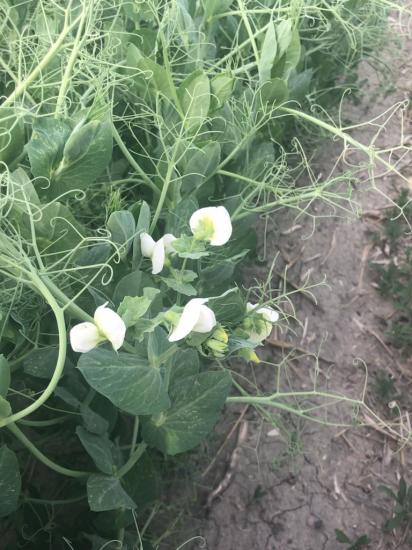Guest Blog by Jim Martindale
Date: 07/08/2021

July 2, 2021
Jim Martindale is an agronomist in Indiana who consults with farms in the Mid-West, from Missouri up to the Dakotas and Saskatchewan. He’s long been using biological programs, including some innovative inputs. Here’s Jim’s approach to farming.
“First of all we recognize the importance of a strong foundation for the development of disease—free plants. That's paramount since every battle fought to overcome disease detracts from potential production.
We start with the seed quality as much as we can exercise control over it. In the case of the spring pea crop in Saskatchewan, we grew the seed crop on the same farm using the same production protocols in 2020. We believe that there were elements in that seed that have been responsible to some degree for the plants we are observing in 2021.
We have been paying close attention to micro-mineral and macro mineral nutrition contained in the soil. Secondly, we credit the soil and soil microbiome with the ability to supply much of the P and K that the plant requires. That means that we have amended the soil microbiome with specific strains of bacteria and fungi that are capable of doing this work. Further we have adopted a tillage strategy, using CurseBuster which does not destroy these microbial populations. The soil is not mixed or inverted. Root systems are not moved, and naturally occurring compaction-like physical features and traffic compaction are systematically removed so that the soil percolates water and has efficient gas exchange year-round.
Biological Input Strategy

We support the increasing density and diversity of the soil and plant microbiome with biological and fertility inputs.
First we feed microbiology using Pacific Gro Seafood Hydrolysate at 1 to 2 gallons per acre depending on row spacing. Secondly, we facilitate colonization of the root system by using carboxylates from fish fermentation in the seed furrow. These are used in conjunction with double chelated broad-spectrum micro–minerals and our proprietary microbe blend.
We are seeing evidence that a diverse soil biology is getting established so it should not be necessary to continue applying microbiology annually or when establishing a new crop. We believe this is happening because we have created massive root systems with proportionately large populations of endophytes that continue to expand their density in the soil and in crop residues.
The system can be self-perpetuating, as long as we do not harm these natural processes, and maintain the soil ecosystem environment that facilitates the growth of the soil microbiome, including aerobic decomposition of plant carbon sources - which is more important than we think.”
Jim Martindale's consulting company, Soil Regeneration Unlimited, is based in Wabash, Indiana. He also markets a minimal tillage tool called CurseBuster. Reach Jim at https://soilcursebuster.com
Share this blog post




